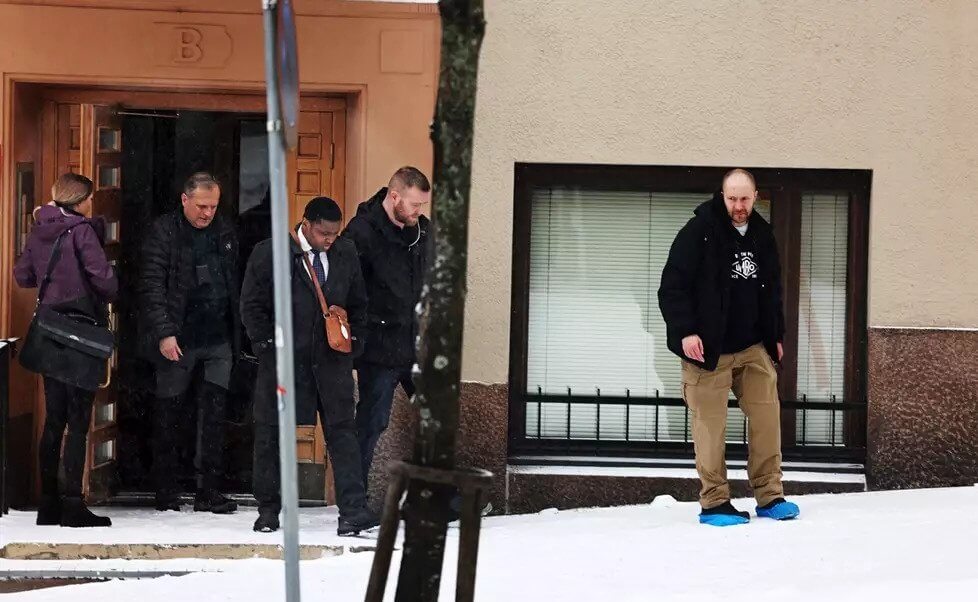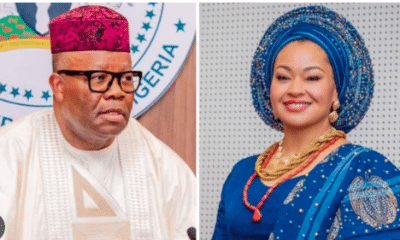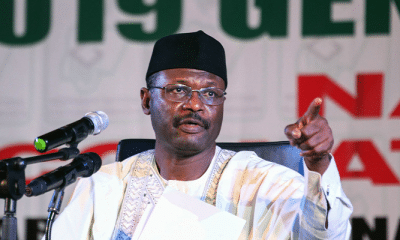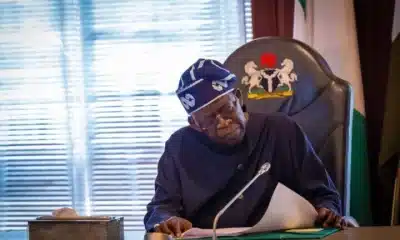Nigeria News
Biafra: Finnish Court Fixes Deadline For Simon Ekpa’s Trial

Pro-Biafran agitator Simon Ekpa, arrested in Finland over alleged terrorism-related activities, is expected to face charges in May 2025, according to Finnish authorities.
Senior Detective Superintendent Mikko Laaksonen of Finland’s National Bureau of Investigation confirmed to The PUNCH via email on Tuesday that the district court had set May 2025 as the deadline for prosecutors to file potential charges against Ekpa.
The Finnish government announced last week the arrest of Ekpa and four others on suspicion of terrorism-related offenses, including incitement to violence and financing terrorism.
Finnish police identified Ekpa, who refers to himself as the Prime Minister of the Biafra Republic Government-in-Exile, as allegedly using social media to incite violence in Nigeria’s South-East, targeting civilians and government authorities.
Local publication Yle reported that the Päijät-Häme District Court remanded Ekpa on charges of public incitement to commit a crime with terrorist intent. The Finnish Central Criminal Police confirmed the arrests in a statement last Thursday, stating that the other suspects were detained for allegedly financing terrorist activities.
Responding to inquiries from The PUNCH, Laaksonen noted that the investigation is ongoing and declined to provide additional details.
Regarding the timeline for court proceedings, Laaksonen stated, “Due to the ongoing investigation, no further details can be disclosed. The date for bringing up possible charges by the prosecution was set by the district court to May 2025.”
He added that both Ekpa and Finnish authorities could request a re-evaluation of the case after two weeks.
“In a basic situation regarding the remand, the next possible hearing can be held no earlier than two weeks from the previous hearing, should the parties in question seek for the matter to be re-evaluated by the district court,” Laaksonen explained.
The case has garnered international attention, with Finnish authorities emphasizing the role of cross-border cooperation in their investigation. However, officials have refrained from disclosing further details about the extent of international collaboration.
“International cooperation is part of the investigation due to the nature of the case, but no further comments can be given on the subject at this point,” the NBI stated.
Ekpa became widely known for his call to boycott Nigeria’s 2023 general elections, which resulted in violent enforcement measures and attacks on residents.
In February 2023, he was first arrested for inciting violence and issuing sit-at-home orders to residents in Nigeria’s South-East.
His actions sparked global petitions urging the Finnish and Nigerian governments, as well as the European Union, to intervene.
The Ministry of Foreign Affairs in Nigeria also summoned Finnish Ambassador Leena Pylvanainen to demand cooperation in addressing the threats posed by Ekpa.
Last Thursday, the Päijät-Häme District Court ordered Ekpa’s imprisonment “with probable cause on suspicion of public incitement to commit a crime with terrorist intent.”
A Finnish citizen of Nigerian descent, Ekpa is accused of inciting terrorism-related activities, while the other suspects face charges of financing terrorism.
As a prominent member of the separatist Indigenous People of Biafra, Ekpa has been a vocal advocate for an independent Biafran state. His inflammatory rhetoric, particularly in recent years, has included explicit endorsements of violence and disruptions to Nigerian elections.
Finnish authorities have linked him to coordinated attacks targeting civilians and security personnel, with investigations tracing some activities back to 2021. Social media platforms have played a significant role in his incitement and fundraising efforts, which are central to the case.
The sit-at-home orders enforced by the Eastern Security Network (ESN) under his directive have caused severe economic losses in Nigeria’s South-East region. Reports estimate that the region has lost over ₦4 trillion in the past two years due to insecurity and disruptions linked to these activities.












